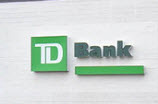TD Bank Explains How To Avoid Its Fees
Responding to bad press it received over the announcement of a new fee and increases of other fees, TD Bank put out a press release clarifying aspects of its new $9-per-withdrawal charge for excessive savings account withdrawals (excluding ATM and teller withdrawals). Insisting the fee will affect only 1 percent of its customers, the release ends with some helpful advice on how to avoid its charges.
Key clarifications from the release include:
* Federal Regulation (Regulation D) limits the number of electronic withdrawals or transfers from a Savings or Money Market account to six per month to discourage Consumers from using a Savings or Money Market account like a Checking account.
* Customers who exceed six electronic transfers or withdrawals from a Savings/Money Market account will incur the fee with the seventh transaction. The transactions under this limitation include: online, phone, check, automatic transfers and bill payments. Again, ATM or Teller transfers or withdrawals do not count towards this limit, nor do any deposits.
* Most banks and credit unions already charge a fee after six transactions to discourage Consumers from using a Savings or Money Market as the main transaction account. If a customer continues to violate the limit, after bank notification, the bank is required by law to close the account or reclassify it as a Checking account.
*The fee can easily be avoided by limiting the number of monthly transactions from a Savings/Money Market account or opening a Checking account.
And now for the bank’s tips on how to avoid the fee:
* Plan ahead and make one large transfer instead of several small transfers.
* Use Checking accounts as the main transaction account and use Savings accounts for savings needs.
* Consider visiting a store, using a TD ATM, or mailing transfer request. These transfers are unlimited.
The unspoken fourth tip is to switch to another bank or credit union.
Want more consumer news? Visit our parent organization, Consumer Reports, for the latest on scams, recalls, and other consumer issues.


